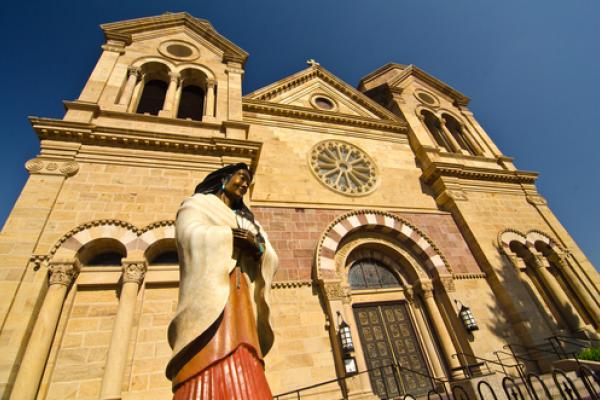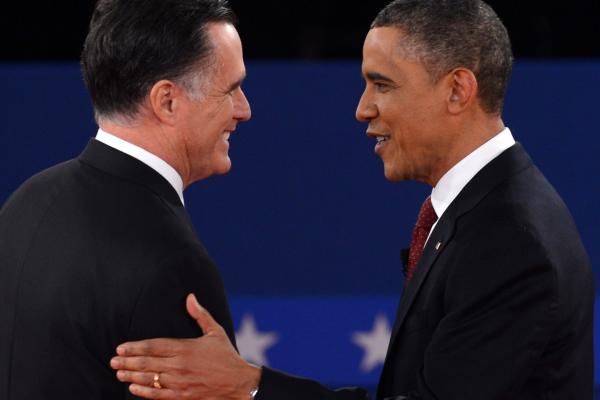America is in dire need of comprehensive immigration reform. It is an ethical and moral issue for sure, but it is also an economic one. Our nation’s future economy prosperity depends on migrant labor. Immigration laws that have been passed in states like Arizona, Georgia, and Alabama have severely hurt the state economies, local communities, and small businesses that rely upon migrant workers for farm labor.
The Senior Editor of CNBC.com, John Carney has asserted that there is no crisis related to a shortage of migrant farm workers. Well, to be perfectly blunt, I believe that Mr. Carney is wrong.
Editor's Note: Theologian extraordinnaire Tripp Hudgins put together this edition of First Thoughts on living with abundance, butting up against living with anxiety.
Art and iconography — both ancient and modern — from Ethiopian Orthodoxy (also known as Tawahedo or "being made one" in the Ge'ez language that remains the official language of the Orthodox liturgy here) were ever-present — in shops, restaurants, and hotel lobbies as well as in the myriad churches and monasteries, and the sounds of ancient Christian prayers and the chants of monks filled the air from the capital city of Addis Ababa to the kebeles (or neighborhoods) on the outskirts of Bahir Dar, another major city about 60 km from the Sudanese border.
DURHAM, N.C. — Protestants have traditionally celebrated Oct. 31 as the anniversary of the start of the Protestant Reformation, a movement that divided Western Christendom and gave birth to such diverse religious groups as Lutherans, Presbyterians, Anglicans, and Mennonites.
On Oct. 31, 1517, an Augustinian friar named Martin Luther nailed 95 theses for debate on the door of the Castle Church in Wittenberg, Germany, and so sparked a religious reform even he could not control.
But Luther's public life actually began five years earlier, 500 years ago this week, on Oct. 19, 1512, when he finished his formal theological education and was installed as a professor of Bible at a relatively new and still nonprestigious Catholic university in Saxony.
No one, least of all his patrons, expected this soft-spoken young man with a tenor voice and a bubbling sense of humor to turn into a religious bomb thrower, whose theological convictions would alter the religious and political structures of Europe for five centuries. Indeed, no one could have been more astonished by this unexpected development than Luther himself.
“Climate refugee” might be an unfamiliar term for many people, but a new film from the Catholic Coalition on Climate Change is trying to change that. Their 40-minute documentary Sun Come Up calls attention to the plight of displaced residents of the Carteret Islands, just north of Bougainville, Papua New Guinea.
Pope Benedict XVI called attention to this issue in his 2010 World Day of Peace message, saying, “Can we disregard the growing phenomenon of ‘environmental refugees,’ people who are forced by the degradation of their natural habitat to forsake it – and often their possessions as well – in order to face the dangers and uncertainties of forced displacement?”
Screenings of the film are happening across the country; groups of 50 or more can sign up to host the film and will receive a discussion guide and education kit.
Read more about the film on the Catholic Coalition for Climate Change website.
SYRACUSE, N.Y. — Sister Kateri Mitchell was born and raised on the St. Regis Mohawk Reservation along the St. Lawrence River. She grew up hearing stories about Kateri Tekakwitha, the 17th-century Mohawk woman who will be declared a saint in the Roman Catholic Church on Sunday.
She has long admired Tekakwitha for her steadfast faith and her ability to bridge Native American spirituality with Catholic traditions. In 1961, Mitchell joined the Sisters of St. Anne, and since 1998 she has served as executive director of the Tekakwitha Conference in Great Falls, Mont., a group that has spread Tekakwitha’s story and prayed for her canonization since 1939.
“We’ve been waiting a long time for this,” she said of the canonization at the Vatican. “It’s a great validation.”
The presidential election is only weeks away… and it’s getting ugly out there. I mean … really ugly.
And before you think I’m just talking about the political process, the political parties, or the respective candidates, I was actually talking about you, me, us, and them … the people. And by people, I’m also especially talking about Christians.
Sometimes, I feel it would be appropriate to label how some Christians engage the presidential election season as “Christians Gone Wild."
Since there’s sure to be drama this week and next following the debates — and each day leading up to Election Day on Nov. 6, and likely some weeks afterward — I thought I’d share with you my 10 Commandments of the Election Season for Christians in hopes that it might speak some balance, sense, and perspective to any readers, not just during this election season but thereafter; not just in this country but in any country.
Why else am I sharing this?
Because I really want you to still respect yourself the morning after the election season.
Because I really want your friends to still respect you, too.
Know what I mean?
So, here are my 10 Commandments of the Election Season
NEW YORK — A year ago, the Rev. Frank Pavone was facing an existential crisis in the unlikeliest of places.
The longtime head of the anti-abortion group Priests for Life, Pavone had been confined to the Diocese of Amarillo by his bishop, Patrick J. Zurek, who sent a letter to every other U.S. bishop declaring that he had so many concerns about the group’s $10 million budget that Pavone shouldn’t be trusted with donors’ money.
Pavone’s backers were stunned, and many stopped giving, which only exacerbated the problems that helped get Priests for Life into trouble in the first place. Pavone also couldn’t go on the road to reassure funders and drum up desperately needed cash.
Instead, the New York-born priest was stuck in a convent in the Texas panhandle where he served as chaplain to an order of nuns in a place called Prayer Town, a virtual prisoner in a war of words with Zurek, who had blasted his “incorrigible defiance of my legitimate authority as his bishop.”
Were I one for object lessons I’d have brought a nice sharp axe with me into the pulpit today. Because it’s only once in awhile that we get to hear Jesus talk about brutal self-mutilation as a sign of discipleship.
Growing up I was terrified of those verses in Mark’s Gospel that we just heard – the ones where Jesus suggests that if your hand causes you to sin cut it off, and if your foot causes you to sin hack that off too, and if your eye causes you to sin gauge the sucker out. I remember the summer I was 11 years old when I stole candy from KMart and then hid it in the heat duct in my room. And I remember hearing this passage soon after that and thinking how my hand had indeed caused me to sin. And then and there I decided to never steal again lest Jesus insist I hack off my own limbs.
The problem, of course, is that my hand has never caused a darn thing. My eye doesn’t cause me to sin. My foot can’t be held accountable for my missteps. If you want to find the culprit behind my sin don’t look at my hand. Look at my heart. My poor feet just do what they’re told.






